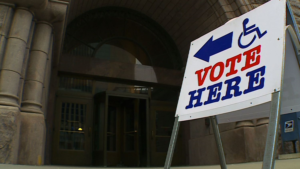Donald J. Trump is measuring electoral landslides with a different set of parameters than most of us.
The president-elect keeps saying he won the election this past month “in a landslide” over Hillary Rodham Clinton.
Hmm. I wonder about that.
When I was studying political science in college, I always believed an electoral landslide — when talking about presidential elections — usually meant something akin to a 10-percentage-point popular vote margin, give or take.
The landslide elections in my lifetime occurred in 1952 and 1956, with Dwight Eisenhower’s two election victories over Adlai Stevenson; 1964, with Lyndon Johnson’s landslide win over Barry Goldwater; 1980 and 1984, with Ronald Reagan’s wins over Jimmy Carter and Walter Mondale.
The 1988 election with George H.W. Bush defeating Michael Dukakis came close to a landslide.
Then you can measure Electoral College landslides, which often don’t coincide with popular vote landslides. George H.W. Bush scored an Electoral College landslide over Dukakis; Bill Clinton rolled up big Electoral College margins over Bush in 1992 and Bob Dole in 1996; Barack Obama’s electoral-vote victory in 2008 over John McCain could be called a landslide.
Now, back to the president-elect’s preposterous assertion of a “landslide” victory over Hillary Clinton.
He’s now trailing the loser by 2.6 million votes nationally. Yes, Trump won the Electoral College vote by a comfortable margin, at 306-232 — but it ain’t a landslide by what I consider to be most people’s measuring stick.
By all means, Trump won the election. He’s going to be the next president. However, the president-elect needs to stop with the delusion that he won by a landslide.
It was a squeaker, dude, in a deeply divided nation. Furthermore, he would do well to listen to the views expressed by the majority of those who voted against him.









